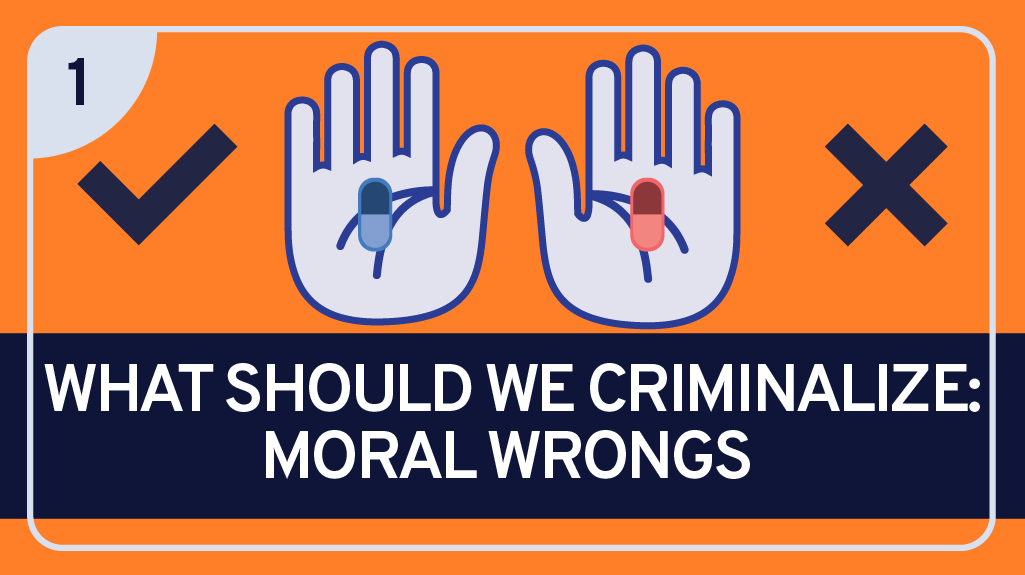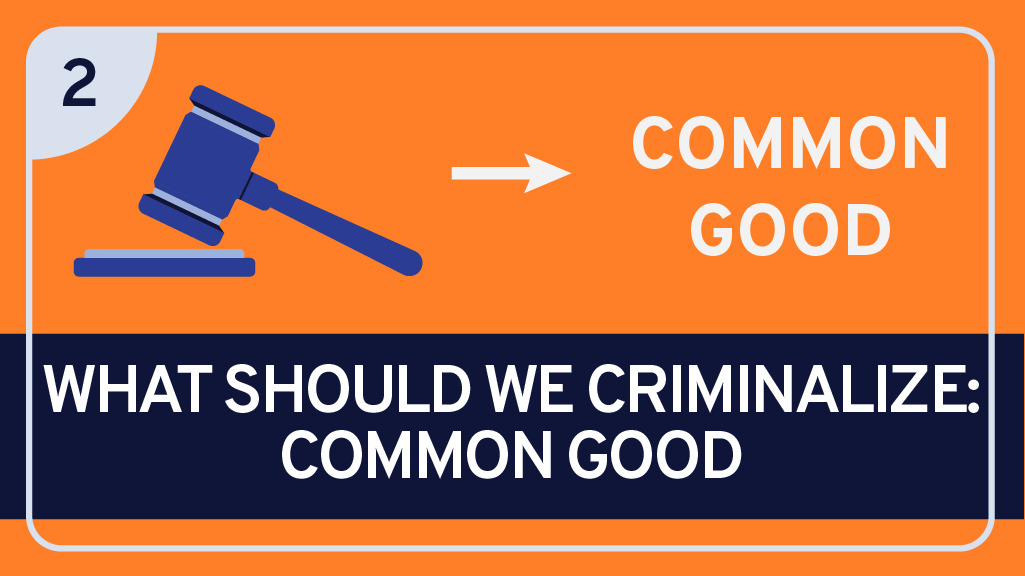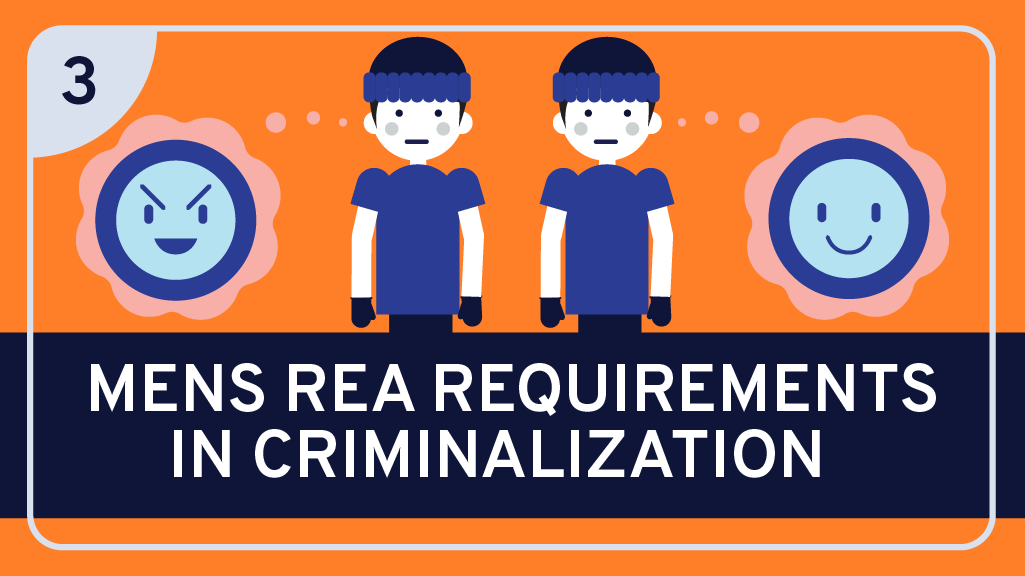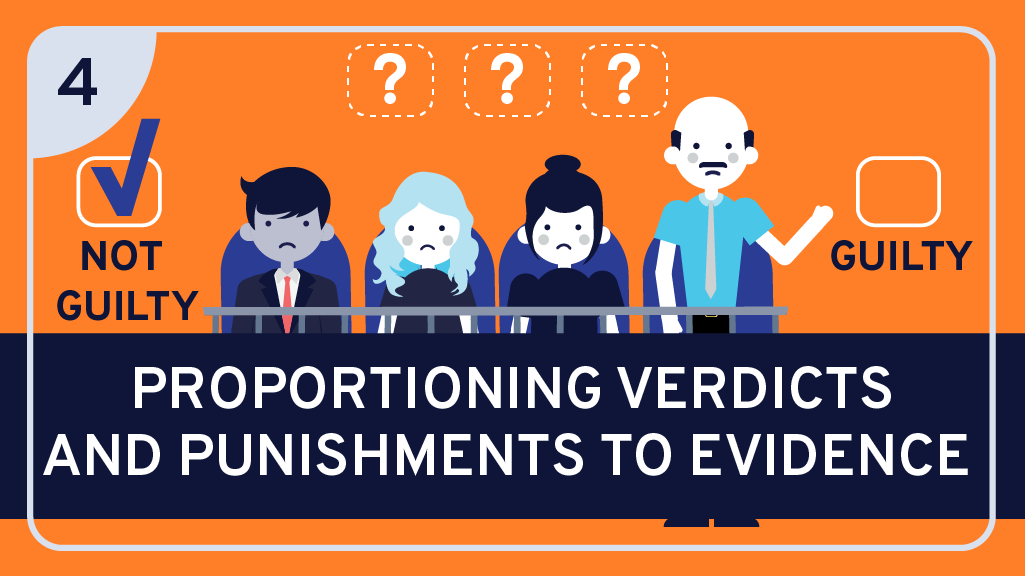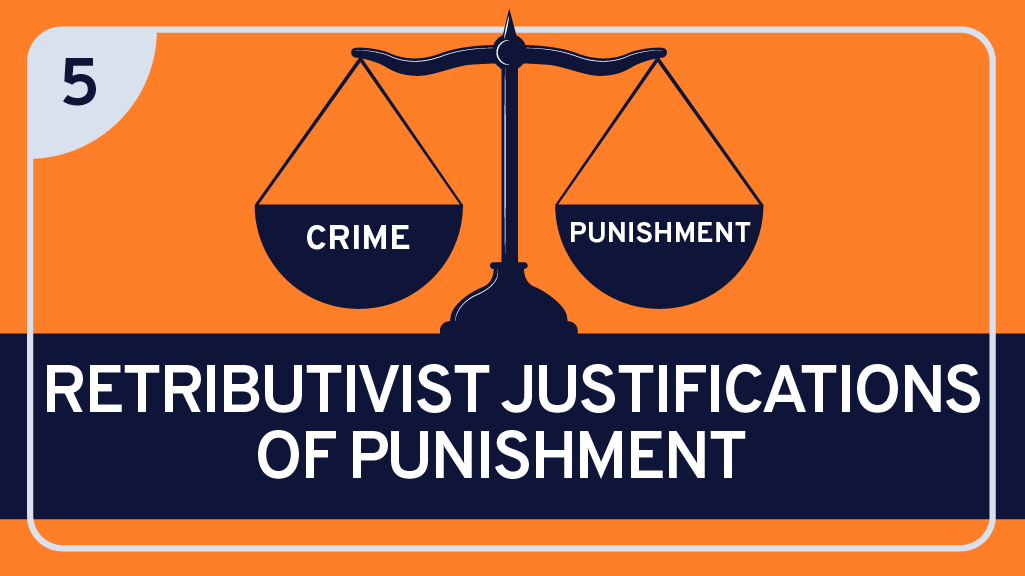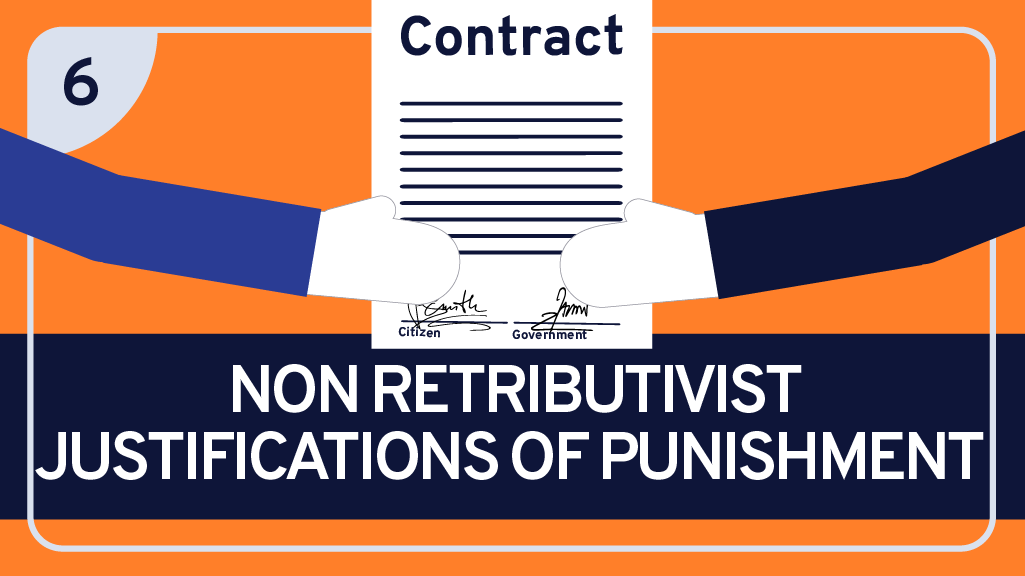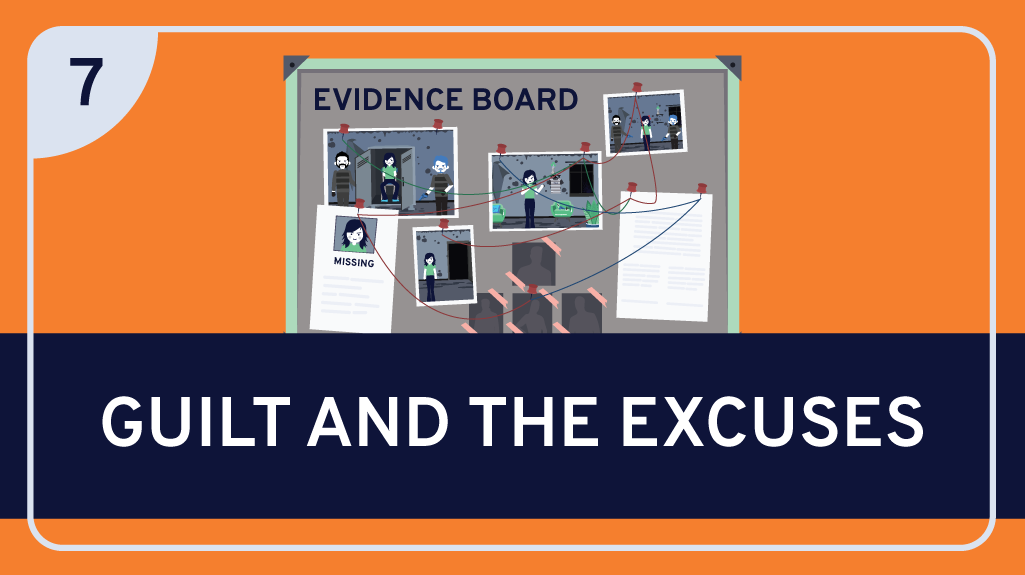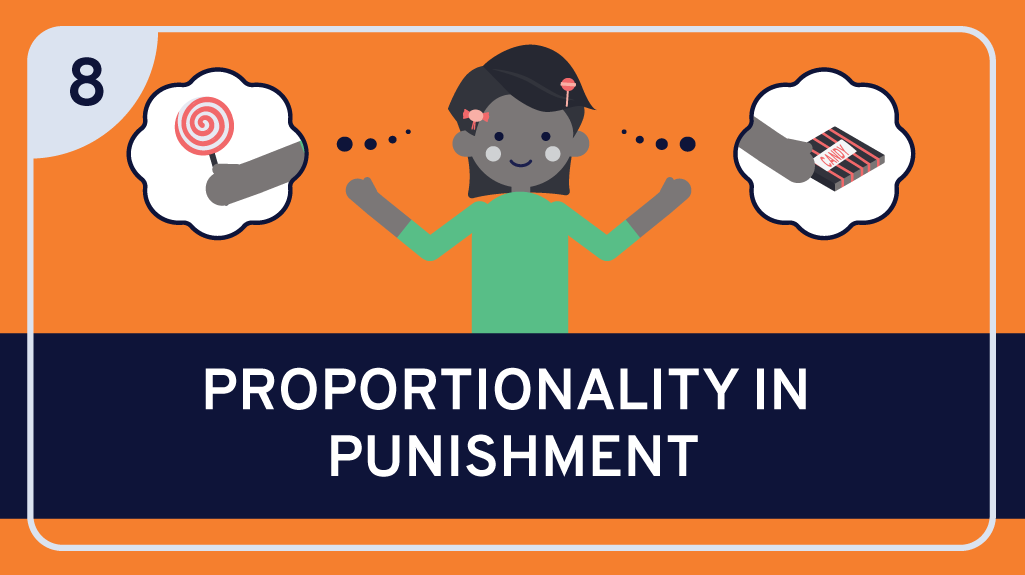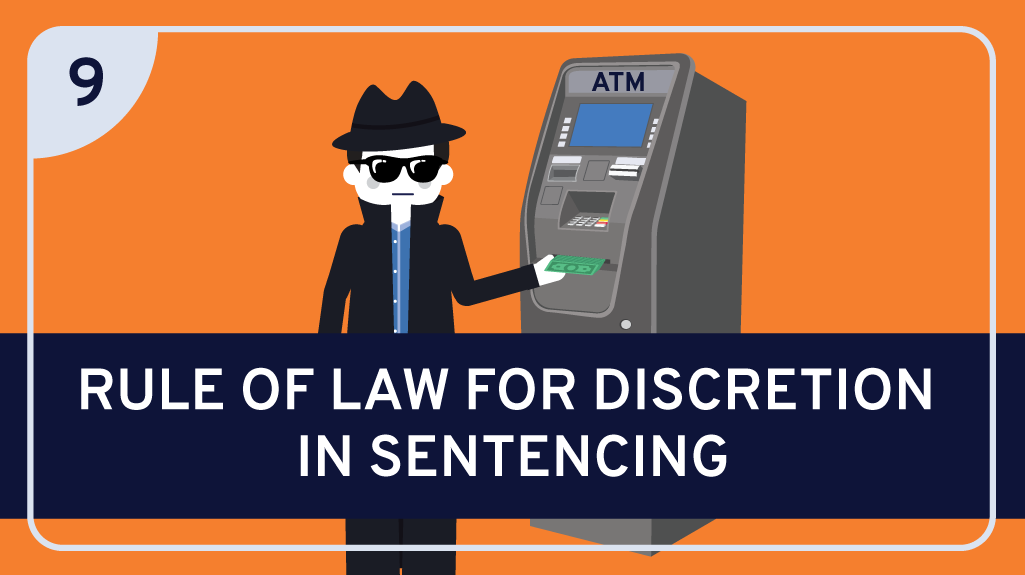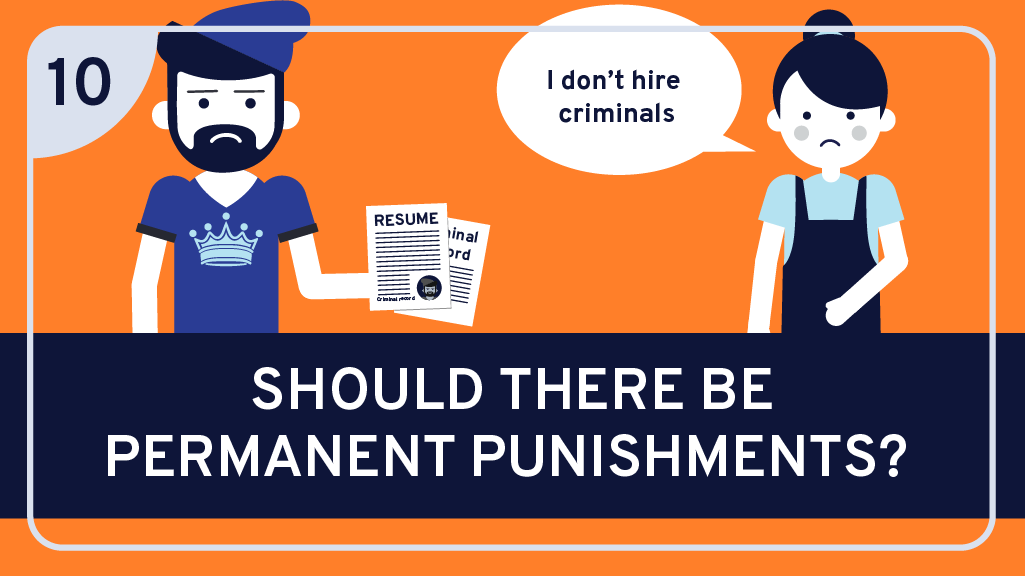Learning Module
Punishment

Lessons
Module Introduction
Learning Outcomes
- Understand the philosophical issues surrounding what acts are criminalized and why.
- Identify who has power in the criminal justice system and why they have such power.
- Understand the connection between moral responsibility and criminal responsibility.
- Identify the moral and political reasons for criminal punishment, and why those reasons may be contradictory.
- Develop ways to question the criminal justice system based on your own moral and political commitments.
LESSON ONE
What Should We Criminalize: Moral Wrongs?
By the end of this lesson, you will be able to do the following:
- Apply the theory that we should only criminalize actions if they are intrinsic moral wrongs.
- Identify a primary justification for limiting criminalization to moral wrongdoings.
- Assess this theory of criminalization in light of its implications in a range of cases.
Watch
Comprehending the argument
1. Which of the following actions is LEAST likely to be criminalized if we only criminalized malum in se actions?
2. Maya believes that the only actions the government should criminalize are moral wrongdoings. According to the video, which TWO of the following claims is Maya most likely to give to justify this belief of hers?
Please select 2 correct answers
Evaluating the argument
LESSON TWO
What Should We Criminalize: Threats to The Common Good?
By the end of this lesson, you will be able to do the following:
- Explain how free riders can lead to collective-action problems.
- Describe how criminal law can be used to solve collective-action problems and promote the common good.
- Identify one key problem with the governing-through-crime approach to criminalization.
Watch
Comprehending the argument
A key strategy in fighting the spread of a contagious virus in a country is to vaccinate a high enough percentage of the country’s population that herd immunity is achieved, leaving the virus without enough hosts to continue transmitting and surviving within the community. How might free riders create a collective-action problem in a country’s effort to achieve herd immunity through mass vaccination?
1. Citing studies showing that the consumption of sugary drinks increases the risk of various health problems, the mayor of a large city proposes a law to criminalize and impose a steep fine on the sale of popular sugary drinks in the city. As someone who believes in governing-through-crime, which TWO of the following arguments is the mayor most likely to give to defend this proposal?
Please select 2 correct answers
2. According to the video, what is one undesirable consequence of the US government’s decision to rely heavily on criminal law to solve social problems?
LESSON THREE
Mens Rea Requirements in Criminalization
By the end of this lesson, you will be able to do the following:
- Distinguish crimes with mens rea requirements from strict liability crimes.
- Recognize a central criticism of the use of mens rea requirements as a tool for social engineering.
- Evaluate arguments for and against the inclusion of mens rea requirements in criminal statutes.
Watch
Comprehending the argument
1. In some US states, selling alcohol to a minor can lead to a criminal conviction even if the seller believed that the customer was old enough to buy alcohol. Based on this description, how do these states classify the crime of selling alcohol to minors?
2. Kant is opposed to social engineers in the government treating mens rea requirements in criminal law as a tool for promoting the common good because he believes doing so is morally equivalent to:
Evaluating the argument
LESSON FOUR
Proportioning Verdicts and Punishments to Evidence
By the end of this lesson, you will be able to do the following:
- Contrast several alternative systems of verdict options available to a jury as it determines the guilt of a defendant in a criminal trial.
- Explain how the frequency of plea deals affects which system of verdicts and punishments criminal defendants effectively face in the US.
- Evaluate arguments for and against adopting a proportionate system of verdict options in place of the binary system that is currently used in US criminal cases.
Watch
Comprehending the argument
1. Yasmin is a juror in a criminal case. Based on all the evidence presented, Yasmin is pretty sure the defendant didn’t commit the crime. Although there are a couple of loose ends that leave her with a bit of uncertainty, she firmly believes that there’s not enough evidence to justify punishing him at all—or even to justify having continued suspicions hanging over him after the trial. Which of the verdict systems discussed in the video would allow Yasmin to choose a verdict that most precisely reflects her judgment in this case?
2. Which of the following statements about plea bargains in US criminal cases is NOT true?
Evaluating the argument
LESSON FIVE
Retributivist Justifications of Punishment
By the end of this lesson, you will be able to do the following:
- Distinguish punishment from other ways that a government might impose burdens on its population.
- Describe the retributivist justification of punishment.
- Classify and assess arguments for and against retributivism.
Watch
Comprehending the argument
1. In some countries, every citizen is obligated to serve in the military for a minimum period of time despite the fact that such service is often dangerous, requires delaying certain life choices, and wouldn’t be voluntarily chosen by many. Does this government-mandated military service count as a form of punishment?
2. Declaring himself to be a retributivist, George argues that offenders should not be given access to substantial, degree-conferring educational programs while in prison. Which of the following lines of reasoning is George most likely to give in opposing education in prisons?
Evaluating the argument
LESSON SIX
Non-Retributivist Justifications of Punishment
By the end of this lesson, you will be able to do the following:
- Distinguish consent-based justifications from social engineering–based justifications of punishment.
- Identify limitations in the effort to justify punishment on contractualist grounds.
- Use your understanding of several major challenges to social engineering justifications of punishment to criticize a concrete criminal law proposal.
Watch
Comprehending the argument
1. “We’ve got to nip this kind of behavior in the bud, before everyone starts doing it.” Which justification of punishment does this statement most nearly express?
2. “Finally, you're getting your just deserts.” Which justification of punishment does this statement most nearly express?
3. “We all agreed, those were the rules—now you have to take your punishment.” Which justification of punishment does this statement most nearly express?
Evaluating the argument
LESSON SEVEN
Guilt and the Excuses
By the end of this lesson, you will be able to do the following:
- Distinguish between doing something wrong and being guilty for it.
- Understand the difference between a moral excuse for a crime and a legal excuse.
- Connect appropriate feelings of guilt with when someone should be punished for a crime.
Watch
Comprehending the argument
1. Which of the following is not a legal excuse?
2. Which of the following is true?
3. According to the video, which of the following is a good test as to whether someone should be held legally guilty for a crime?
Evaluating the argument
LESSON EIGHT
Proportionality in Punishment
By the end of this lesson, you will be able to do the following:
- Understand what it means to say that “the punishment should fit the crime.”
- Explain the difference between cardinal and ordinal proportionality.
- Explain the problems with relying on each of these notions of proportionality when determining a punishment.
- Consider the importance of generating social goods through systems of punishment.
- Formulate your own judgment about how much to punish someone for a crime.
Watch
Comprehending the argument
1. Which of the following scenarios represents ordinal proportionality in punishment?
Evaluating the argument
LESSON NINE
Rule of Law or Discretion in Sentencing?
By the end of the lesson, you will be able to:
- Identify criticisms over imposed mandatory minimums for crime.
- Evaluate the impact of aggravating and mitigating factors on the severity of a crime.
- Understand the costs and benefits of judicial discretion on allocating punishment.
- Explain the divide thought between advocates of judicial discretion and advocates of the rule of law.
Watch
Comprehending the argument
1. Which of the following defines a mandatory minimum?
2. Which of the following is an example of a judge using discretionary sentencing?
Evaluating the argument
1. Suppose that a person is arrested for holding up a bank and taking money from the teller. Think of the following variations of the case, and consider whether you think these variations are aggravating, mitigating, or neutral factors in determining the severity of the sentence a judge should impose.
LESSON TEN
Should There Be Lifelong or Permanent Punishments?
By the end of this lesson, you will be able to do the following:
- Identify examples of the collateral consequences of incarceration.
- Distinguish desert-based justifications from liability-based justifications of lifelong collateral consequences.
- Adjudicate arguments for and against the justice of collateral consequences.
Watch
Comprehending the argument

